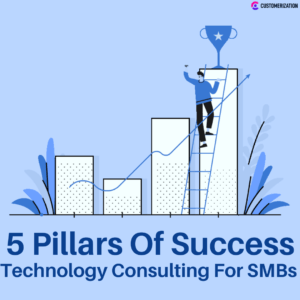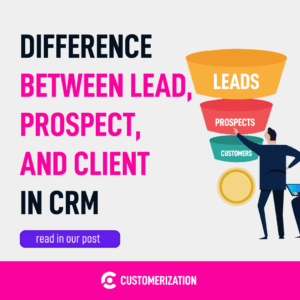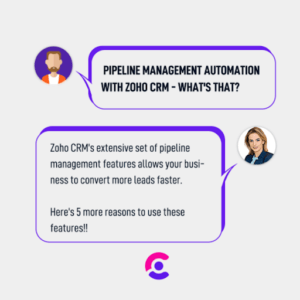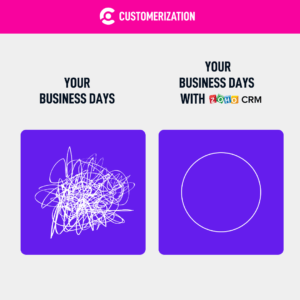We have all grown up learning about the Excel wonder. How helpful it is in streamlining processes and managing data. But, change is the only constant. As businesses grow, the time comes to transition to a much more refined tool to manage customer databases and sales processes – CRM.
What’s the Difference Between CRM and a Spreadsheet?
CRM stands for Customer Relationship Management. It differs from a spreadsheet in a few ways:
- Serves salespeople, managers, and end customers better
- Increases productivity via automations
- Streamlines and unifies the sales process
- Provides a complete view of each customer (B2B or B2C)
For example, bulk actions are a function of CRM that’s not easily accessible in excel. With the help of a CRM, you can modify data for multiple contacts within one company at once. Or change the status of numerous accounts with one click!
Further, since most CRMs are hosted in the cloud, you eliminate the risk of losing vital data or having to deal with multiple versions of the same spreadsheet. Several CRMs, such as Zoho CRM, offer AI-based tools to help you analyze your work, raise flags, deduplicate your data and make your life easier even within its free 30-day trial*.
Why Use CRM Instead of Excel?
If you’ve been a little on the edge about the limitations of Excel, here are the top five reasons why it’s high time to switch to CRM:
1. Improve lead management
Scrolling through the endless cells on Excel can get tiresome really fast. Not to forget the added struggle of adding information to those tiny cells or even missing some vital updates since it doesn’t notify or push those to the top on its own.
Meanwhile, CRM is specially designed to store detailed information and improve lead management. From storing customer names to storing their qualifications, it stores everything.
According to research done by Salesforce, by using CRM, you can increase your sales by 29% on average.
Take this video for example, it shows you how easy it would be to look up records for you to modify.
2. Access to Added Software
While Excel can only be used with other Microsoft tools such as Word or Access, this issue can be avoided if you go for CRM. You won’t have to rely on Office-related software to transfer data between programs.
CRMs are created in a way that enables the seamless integration of common business applications such as your favorite email provider, calendar, and so on.
This feature helps you to never lose sight of client communications and have access to those even when your sales people leave the org.
3. Easy Access to Data
Cloud CRM software allows multiple users to view the same data at the same time. But at the same time, access can be controlled too by superiors. For example, a sales rep can only see his/her work while their manager can see what everyone in the team is doing.
Several CRMs, such as Zoho, also come with a mobile app that lets you access customer and sales information on your phones/tablets.
4. Routine Activities Automation
CRM uses AI (Artificial Intelligence) to automate everyday tasks and help marketers save valuable time and achieve their goals faster. For instance, interactions on social media and messenger apps have been automated using AI tools (such as chatbots).
Salesforce’s report further states that 64% marketers have automated their attribution and metric measurement.
5. Visualization and Reporting
CRM tools also include dashboards that help in spotting trends that can help you improve your marketing and sales strategies, and build trust and brand loyalty in a sustainable manner. By studying these reports and metrics, you can gather intel on how and which clients to target.
For example, first determine which things are keeping the people most engaged and then create messaging, offers, deals, etc. accordingly.
Essentially, a CRM dashboard provides valuable insights that can enhance your consumer-based strategies and communications.
When it comes to handling your business, nobody can do it better than you. But we do believe that CRM software can help you maximize your productivity, improve communication, and manage your business way better than Excel. And who doesn’t want that?
If you’re not sure you’re ready for a CRM, ask our expert – book a 15 min call.




